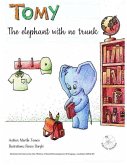Proverbs stands as a foundational text in wisdom literature, offering a remarkable wealth of sayings and teachings that emphasize the profound importance of wisdom in everyday life. Agur, whose insightful contributions to Proverbs are found in Chapter 30, presents a distinct and thought-provoking perspective on wisdom, emphasizing both humility and the relentless pursuit of knowledge. His proverbs challenge readers to deeply reflect on their understanding of God and their individual place in the vast universe. In contrast, the Chronicles recount the rich lineage and enduring legacy of the Israelites, providing a historical narrative that reinforces the essential importance of community and identity throughout generations. By thoughtfully comparing these texts, readers can come to appreciate how wisdom literature not only instructs individuals in their personal journeys but also plays a vital role in shaping the collective identity of the entire community. The cultural and historical context of Agur and Jabez significantly enriches the understanding of their profound teachings. Agur's proverbs emerge from a society that is deeply rooted in oral tradition and communal living, where wisdom was not only shared but also highly valued across generations. This communal aspect highlights how collective experiences shape individual insights. In contrast, Jabez is introduced within a genealogical framework, which emphasizes the critical importance of lineage, heritage, and community ties. His heartfelt prayer, a sincere plea for divine blessing and protection, resonates powerfully with the themes of individual identity and the vital role it plays within a broader communal framework. This intriguing juxtaposition of individual aspirations and communal concerns beautifully illustrates the multifaceted nature of wisdom literature, where personal growth, self-awareness, and societal responsibilities are intricately intertwined, each influencing and enhancing the other in significant ways. Agur's profound wisdom continues to significantly influence modern decision-making and leadership practices in various fields. His enduring emphasis on humility, along with the acknowledgment of one's limitations, serves as a crucial guide for leaders who are navigating complex moral dilemmas in today's challenging environment. By thoughtfully applying Agur's valuable insights, individuals can effectively cultivate a leadership style that is firmly grounded in ethical considerations, which in turn fosters collaboration, mutual respect, and understanding within their communities. This approach not only enhances and enriches decision-making processes but also aligns seamlessly with contemporary spiritual practices that deeply value discernment, reflection, and the pursuit of wisdom. Ultimately, embracing Agur's principles can lead to more thoughtful and impactful leadership in our increasingly interconnected world. The role of prayer in the narratives surrounding Jabez adds another significant layer of understanding within the broader context of wisdom literature. Jabez's heartfelt request for divine intervention not only emphasizes the importance of prayer as a powerful means of seeking guidance and support but also underscores the deep spiritual connection that individuals can cultivate through such practices. This compelling narrative encourages readers to reflect thoughtfully on the transformative power of prayer in their own lives, prompting a deeper examination of their desires, intentions, and the motivations behind their prayers. Together, the insightful teachings of Agur and the inspiring story of Jabez weave a rich tapestry of wisdom that continues to resonate profoundly in modern spiritual and ethical discussions, encouraging ongoing contemplation and engagement with these timeless themes.
Hinweis: Dieser Artikel kann nur an eine deutsche Lieferadresse ausgeliefert werden.
Hinweis: Dieser Artikel kann nur an eine deutsche Lieferadresse ausgeliefert werden.








